Mebendazole is also a very well-established anthelmintic medication that is used primarily to treat various parasitic worm infections. Whether it is from pinworm, whipworm, roundworm, or hookworm, this tablet has rightfully earned its place in the global healthcare systems for its high effectiveness and very minimal side effect profile. In this detailed blog, we will explore everything that you need to know about Mebendazole tablets, including their mechanism of action, dosage, side effects if any, and when should one avoid using them.
What is Mebendazole?
Mebendazole is actually an anti-parasitic medication that falls under the class of benzimidazole anthelmintics. It mainly works by inhibiting the uptake of the compound glucose by the parasitic worms, thereby depleting their energy reserves totally. Over time, this leads to the death of the worms, which are then eliminated completely from the body through the digestive tract.
It is most commonly prescribed in order to treat intestinal worm infections, which include:
- Pinworm (Enterobius vermicularis)
- Roundworm (Ascaris lumbricoides)
- Whipworm (Trichuris trichiura)
- Hookworm (Ancylostoma duodenale and Necator americanus)
- Occasionally, tapeworms and other off-label uses
Brand Names and Forms
Mebendazole is also available under various brand names all around the world. Common ones include:
- Vermox
- Ovex
- Antiox
- Mebex
It is typically available in the tablet and the chewable tablet form as well, usually in 100 mg strength. Some pediatric preparations also do come in suspension form for ease of administration to the children.
How Does Mebendazole Work?
Mebendazole mainly works by disrupting the cellular structure of the parasitic worms by binding to tubulin, a protein that is very essential for the cell structure and function. This binding:
- Prevents glucose uptake
- Blocks energy production in the worm
- Leads to immobilization and eventual death
Importantly, Mebendazole acts locally in the gut region, with minimal absorption into the bloodstream, which then enhances its safety profile.
Indications: When is Mebendazole Used?
1. Pinworm Infection (Enterobiasis)
Pinworm is a common parasitic infection, especially in children. Mebendazole effectively clears these worms with a single dose in most cases.
2. Roundworm (Ascariasis)
Roundworm infections often occur due to poor sanitation. Mebendazole interrupts the lifecycle of the worms and expels them from the intestines.
3. Whipworm (Trichuriasis)
Whipworms can cause abdominal pain and diarrhea. Mebendazole helps reduce the worm burden effectively with a 3-day regimen.
4. Hookworm (Ancylostomiasis and Necatoriasis)
Hookworm can lead to anemia and nutritional deficiencies. Mebendazole is one of the first-line treatments.
5. Other Uses
- Trichinosis
- Hydatid disease (off-label)
- Mixed helminth infections
Dosage Guidelines
Dosage depends on the type of infection, age, and severity. Below are general guidelines:
| Infection Type | Dosage for Adults & Children (>2 yrs) | Duration |
| Pinworm | 100 mg single dose | Repeat in 2 weeks if needed |
| Roundworm/Whipworm | 100 mg twice daily | 3 days |
| Hookworm | 100 mg twice daily | 3 days |
| Mixed infections | 100 mg twice daily | 3 days |
Note: Always consult your healthcare provider before beginning treatment.
How to Take Mebendazole Tablet
- With or without food: Can be taken with or without meals.
- Chewable: Tablets should be chewed thoroughly before swallowing.
- Crush if needed: For children, tablets can be crushed and mixed with food.
- No laxative required: Unlike some other worm treatments, no laxative is needed.
Side Effects of Mebendazole
Mebendazole is generally well tolerated, especially when used in single doses. However, like any medication, side effects can occur.
Common Side Effects:
- Abdominal pain
- Gas or flatulence
- Diarrhea
- Nausea
Rare Side Effects:
- Skin rash or itching
- Headache
- Dizziness
- Hair loss (usually reversible)
- Allergic reactions (very rare)
Serious Side Effects (Seek immediate medical help):
- Severe allergic reactions (anaphylaxis)
- Liver enzyme elevation (in prolonged use)
- Bone marrow suppression (very rare)
Who Should Avoid Mebendazole?
Contraindications:
- Allergy to Mebendazole or any excipient
- Pregnancy (especially first trimester) – animal studies have shown teratogenic effects.
- Children under 1 year – not typically recommended.
Caution in:
- Liver disease
- Breastfeeding women (minimal data available)
- Individuals on prolonged therapy or high-dose regimens
Mebendazole in Pregnancy and Breastfeeding
Pregnancy:
- Category C (U.S. FDA): Risk cannot be ruled out.
- Avoid during the first trimester.
- May be used under medical supervision during 2nd or 3rd trimester if benefits outweigh risks.
Breastfeeding:
- Minimal systemic absorption makes it relatively safe.
- Still, caution is advised, and medical advice is essential.
Drug Interactions
Mebendazole may interact with certain drugs. Inform your doctor if you are taking:
- Cimetidine: May increase Mebendazole levels.
- Carbamazepine or Phenytoin: May reduce Mebendazole effectiveness.
- Metronidazole: Rare risk of Stevens-Johnson Syndrome when used together (avoid combination).
Tips for Effective Use
- Treat all household members if pinworm infection is confirmed.
- Maintain hygiene: wash hands, trim nails, clean bedding, and clothes.
- Disinfect household surfaces during and after treatment.
- Take repeat doses if reinfection risk is high (as advised by your doctor).
Storage and Handling
- Store at room temperature (15°C–30°C).
- Keep away from moisture and direct sunlight.
- Keep out of reach of children.
Alternatives to Mebendazole
If Mebendazole is not suitable or available, the following may be prescribed:
- Albendazole – a broad-spectrum anthelmintic
- Pyrantel Pamoate – especially effective for pinworms
- Ivermectin – for certain worm and parasitic infections
Always consult a physician before switching medications.
Conclusion
Mebendazole tablets are a trusted and effective solution for treating a range of intestinal worm infections. With its minimal side effect profile and strong efficacy, it remains one of the most commonly prescribed deworming agents across the world. However, proper hygiene, timely dosing, and medical supervision are key to ensuring complete eradication and preventing reinfection.
If you or your family members experience symptoms like persistent itching around the anus, abdominal discomfort, or unexplained weight loss, consult your healthcare provider about the possibility of parasitic infection and whether Mebendazole may be right for you.
Frequently Asked Questions (FAQs)
1. Can I buy Mebendazole over the counter?
In some countries, yes. However, in many regions, Mebendazole requires a prescription. It’s best to check local regulations or consult a pharmacist.
2. How long does Mebendazole take to work?
Mebendazole typically starts working within a few hours, but complete eradication may take a few days. Symptoms usually improve within 2-3 days.
3. Can I take Mebendazole during my period?
Yes, menstrual cycles do not affect the efficacy of Mebendazole.
4. Is it safe to give Mebendazole to pets?
No, Mebendazole is formulated for human use. Always use veterinary-grade dewormers for pets.
5. Can I drink alcohol while taking Mebendazole?
Occasional alcohol is unlikely to interfere, but it’s best to avoid alcohol when taking any medication unless approved by a doctor.

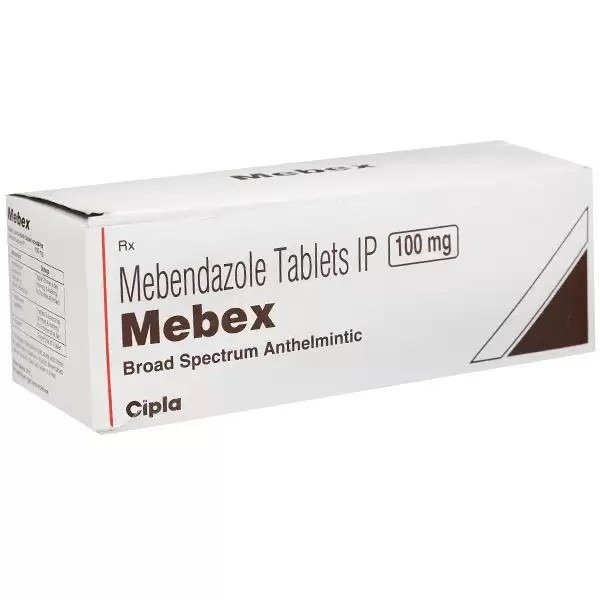
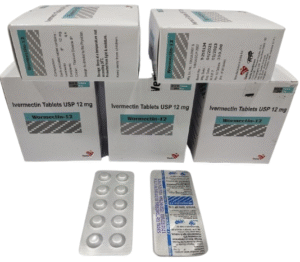
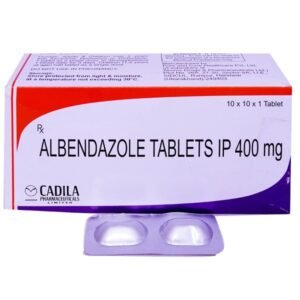
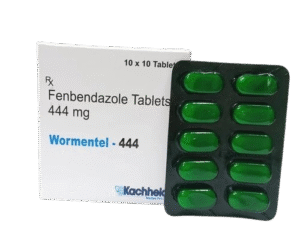
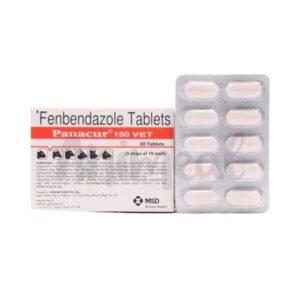
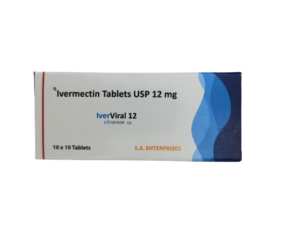
Reviews
There are no reviews yet.